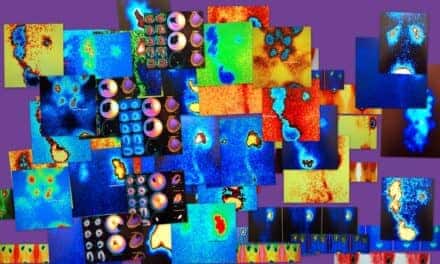Riverside Health System, Newport News, Va., and OhioHealth Riverside Methodist Hospital, Columbus, Ohio, will both receive Safety FiRsT grants to implement initiatives that will elevate technologist safety in the workplace. Launched in 2015, the Safety FiRsT program awards two American Society of Radiologic Technologists (ASRT) members per year a grant of up to $7,000 each to improve RT safety in their departments.
This year’s recipients are Ruth Van Davelaar, MHSA, RT(R)(T), who applied on behalf of Riverside Health System in Newport News, Va., and Annette Long, RT(R)(MR) MRSO, who applied on behalf of OhioHealth Riverside Methodist Hospital in Columbus, Ohio.
The grant awarded to Riverside Health System will be used to purchase a vertical power lift that allows technologists to move patients with ease from floor-level surfaces to higher levels such as a chair or treatment table. The new lift will provide safety for the radiation therapist, reducing potential back strain and subsequent injuries, as well as the patient. This device, paired with ASRT’s educational product Safety Essentials: The Series, which also is being awarded, will enable staff to move and care for patients safely.
As director of the Radiation Oncology/Radiosurgery Department for Riverside Health System, Van Davelaar says being chosen for the grant opens the door to education and awareness for other team members throughout the hospital system, peers, and the community. “By celebrating this award publicly, more opportunities will arise to talk about safety in our profession and to take specific and deliberate action,” she says. “This [grant] enables us to highlight and promote safety for our team while providing safe and comfortable transfers for our patients.”
The grant awarded to OhioHealth Riverside Methodist Hospital will be used to purchase a ferromagnetic detection system for MR safety. The device will allow for real-time screening of potentially hazardous implants, devices and supplies and prevent injury from ferrous materials that could otherwise enter the screening room. Unlike wand detectors that rely on the diligence of the user, this device will provide consistent and reliable screening while remaining less intrusive than other screening methods. Annette also will receive ASRT’s educational product, Safety Essentials: The Series.
As team leader–MRI for OhioHealth Riverside Methodist Hospital, Long says she strives to make Zone 4 in the MRI suite as safe as she possibly can. “This award will be used multiple times daily on patient and staff to ensure clearance into Zone 4. It will prevent unknown ferromagnetic objects to enter the room, therefore, making that environment safe for the patient and staff,” she says.
Now in its fourth year, the Safety FiRsT program is helping healthcare facilities create safer work environments for radiologic technologists. Last year, Ericka Lasley, RT(R), of Mary Washington Hospital in Fredericksburg, Va., was awarded a grant to purchase lightweight and lead-free aprons that provide 20% more protection. In addition, Meghan Whittaker, RT(R), of Union Health-Union Hospital in Terre Haute, Ind., received a grant to purchase an MR-safe cart that raises and lowers for proper positioning of the patient and proper ergonomics for the technologist.
The ASRT Foundation and Canon Medical Systems Safety FiRsT grants are funded by a grant from Canon Medical Systems. For more information, visit ASRT.






